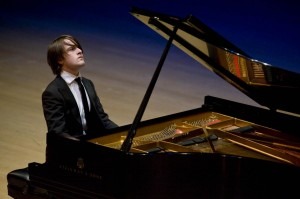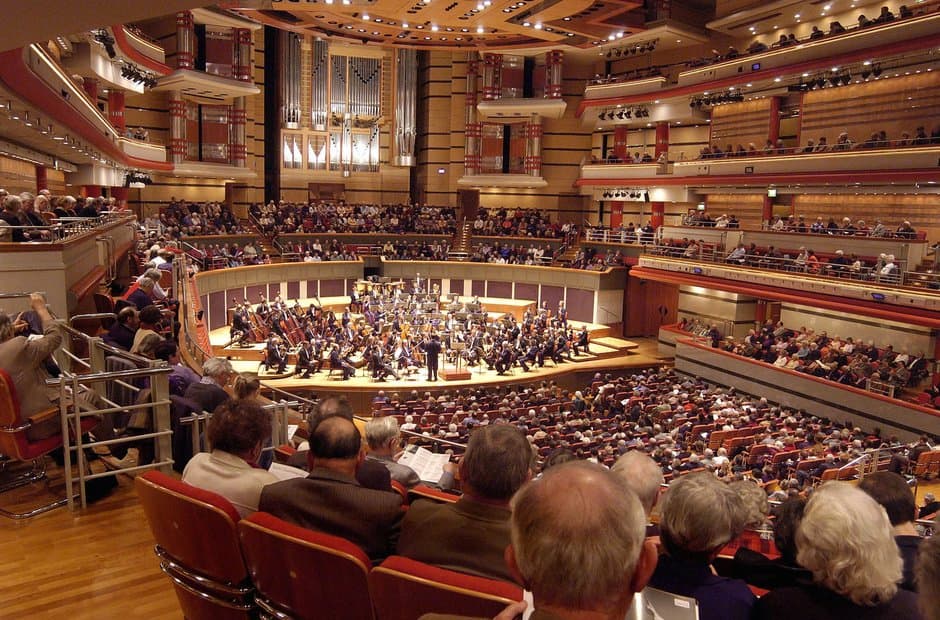
Glenn Gould
Credit: Wikipedia
Music – like wine – needs to mature. We need to spend time with it, understand it, allow its flavour, depth, and narrative to develop. We need to live with the music to find out what makes it special, study its style and contextual background which provide invaluable insights into the way it should be interpreted and performed, listen around the work, endlessly strive to find the emotional or spiritual meaning of a work, its subtleties and balance of structure, and how to communicate all of this to an audience as if telling the story for the very first time.
To do this, we should never study and learn music solely in the isolation of the practise room. The 8-hour practise regime I know some musicians pursue is harmful in so many ways, beyond the merely physical. And note-bashing (which is what practise becomes beyond a certain time-frame), is no substitute for life experience: fall in love, fall out of love, embrace art, literature, poetry, theatre, film, go to concerts, meet friends, eat, drink. All these things feed the artistic imagination and help shape one’s response to music. Because, fundamentally, composers are just like us – sentient, thinking, emotional human beings who drew on their own life experience to create their music.

Daniil Trifonov
Credit: http://www.newcriterion.com/
In more practical terms, I believe that our music matures through detailed and careful learning, a deep understanding of the piece, and a solid grounding in the technical and stylistic aspects of piano playing, together with an awareness of cultural and historical contexts. Learning a work and then putting it aside for a few months can also be hugely beneficial, for on returning to that work, one often discovers new things about it, while also deepening one’s understanding of and response to the music. Lately, I have revisited several pieces I learnt five or six years ago: greater experience, insight and knowledge as well as superior technical security and physical coordination have undoubtedly improved these pieces. Performing regularly helps shape our response to our music and allows new ideas to develop which can be reviewed and pursued after a performance. The work is never static: it is always evolving, developing, and on this basis one can never truly say a work is “finished”.
Observing young professional artists in concerts, it strikes me that many young people, and even some more established or senior artists, feel they must learn a lot of repertoire very quickly. They are under pressure to have the big warhorse concertos – a Rach, a Tchaik, a Beethoven – in the fingers, together with other “holy grails” of mainstream concert repertoire, such as Chopin’s Études, Ballades, Sonatas and Scherzi, Liszt’s Transcendental Etudes, Beethoven’s most well-known and well-loved piano sonatas. Young artists are under tremendous pressure in this competitive world of classical music to demonstrate that they can handle these great works (competitions and superior-quality recordings don’t help this situation either), but sometimes their performances seem to lack depth: technically assured but not always as insightful or thoughtful as one might like, their sound becomes cosmetically pleasing and superficial, as if they are striving for that perfect sound of a top-quality recording, instead of allowing emotion and life experience and the excitement and risk of the one-off live performance to enter their music. One hopes that such artists will give their music time to develop and mature.
Goldberg Variations: Aria
Glenn Gould 1955
Glenn Gould 1981
The late great Glenn Gould was obviously aware of the differences in one’s playing and responses to the music which develop over time when he re-recorded the Golberg Variations in 1981. Compare this with his youthful recording, and one hears more breathing space and thoughtfulness in the music. It is perhaps this insight and profundity that one seeks in going to hear performers such as John Lill, Maurizio Pollini, Martha Argerich, Murray Perahia, Maria Joao Pires and Radu Lupu, all now “senior” musicians who have spent a lifetime in music. But of course now and then one comes across a young performer whose playing leaves one utterly awestruck and keen for more: one such performer is Daniil Trifonov, who already displays an extraordinarily mature approach, combined with superb technique and musical understanding. One can only hope that these fine aspects of his pianistic persona go on developing as he matures.
Chopin: 12 Etudes
Daniil Trifonov




